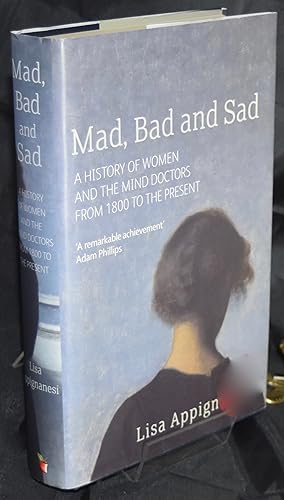
Appignanesi relies heavily on famous ‘mad’ women such as Mary Lamb, Zelda Fitzgerald and Virginia Woolf (as if starstruck at times) to exemplify how we take flight in era-bound exigencies, becoming what we need to become for the society in which we live.


An ideal state for the task she sets out: ‘to tell the story of madness, badness and sadness’ and the ways in which women have fared among our understandings of them over the past 200 years. Comments such as ‘I have long been aware of the shallowness of sanity’, suggest a writer at ease with her thinking, her emotions and their expression. I would recommend Appignanesi's book to anyone gladly. Her current historical approach to women's predicament and their relationship with mental illness is reminiscent of, but less proselytising than, the magnificent book by feminist author Elaine Showalter The Female Malady: Women, Madness, and English Culture, 1830–1980 (Pantheon, 1985).

Lisa Appignanesi has a good track record writing about women and psychiatry ( Freud's Women: Orion, 2005).


 0 kommentar(er)
0 kommentar(er)
